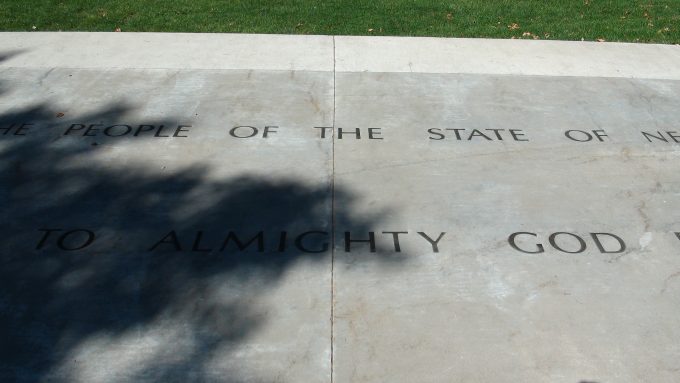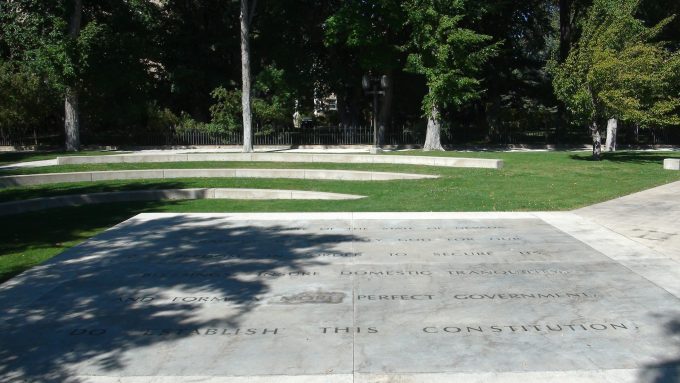
Friday, 12 October 2018
As He also says in another place:
“You are a priest forever
According to the order of Melchizedek”; Hebrews 5:6
The words of this verse are based on the introductory words of the previous verse. There it said, “So also Christ did not glorify Himself to become High Priest, but it was He who said to Him.” The “He” there is referring to God. After that, the author cited Psalm 2:7. Now, to continue to confirm that Jesus was selected by God to be High Priest of the New Covenant, he again goes to Scripture by saying, “As He also says in another place.”
He has done this to confirm that it is God who has selected Christ, and the evidence is already recorded in the word of God. This time, it is in Psalm 110:4. How can we know these words are speaking of Jesus? First, he has already used this same Psalm to show that it is fulfilled in Jesus. This was seen in verse 1:13. He will continue to confirm it in this chapter. Further, He will again refer to the words of this psalm, in detail, in Chapter 7. It is obvious, based on the abundant evidence that he has provided and will continue to provide, that this is speaking of Christ Jesus.
As a reminder that this psalm was always considered as messianic in nature, the opening of the psalm says, “The Lord said to my Lord.” In this, the first use of “Lord” is the divine name, Yehovah. In the second, it is the word Adonai. It is a term used when speaking about or to Yehovah, rather than pronouncing His divine name. Both uses are speaking of Yehovah. David is, therefore, making a statement about the Lord appointing Himself to a particular position. In this case, it is the appointment of Jesus the Messiah (who is Yehovah God) to the role of High Priest of a new covenant. This is evident from the words cited by the author which state, “You are a priest forever.”
Here it doesn’t say “high priest.” Though He is called this elsewhere in Hebrews, it is not used here in order to make the comparison to Melchizedek, who was never called “high priest.” Christ Jesus would be a priest, executing priestly functions, on behalf of the people and for Yehovah Elohim, or the Lord God. And this priestly role would be “forever.” This is an explicit note of superiority of Christ over Aaron. Aaron was told he would have an everlasting priesthood (meaning during the duration of the Old Covenant), but that priesthood was not in him personally. Rather, it was through him and then his sons after him. In contrast to that, Christ’s ministry would be through Him personally and forever. Therefore, His priesthood is superior to that of Aaron. This will be evaluated and explained in detail in Chapter 7.
The verse then finishes with “According to the order of Melchizedek.” The author now presents Melchizedek’s priesthood as a priesthood comparable to that of Christ Jesus in that it is “forever.” Whether this is literally true or not, or how he can substantiate this, is not the author’s concern yet. That will not come until Chapter 7. He simply makes the statement that it is so. As David recorded it under inspiration from God, it must be a valid premise, and so our author simply states it as an axiom. Melchizedek’s priesthood is forever, and the priesthood of Christ is according to the order of Melchizedek. Therefore, the priesthood of Christ Jesus is forever.
The author could leave the statement here and go no further and have a case for the superiority of Christ’s priesthood over that of Aaron, but he won’t. He will explain the matter in complete detail as he continues. For now, he is simply introducing Melchizedek in order to show that Jesus’ priesthood is worthy of full attention and that it will fully satisfy the mediatorial role of those who come to Him.
Life application: As Jesus’ priesthood is superior to that of Aaron, and as Aaron ministered under the Mosaic Covenant, then what would be the purpose of going back to a priesthood that had continuously failed to bring priest and people to a state of perfection? The sins of the people continued, and year by year they needed a covering for new sins which entered into their lives. The people died, and a new generation sprang up with the same problems. Life could never come about through adherence to this system. Only in Christ Jesus could it be made possible. And yet, there are innumerable people today who are asking their audiences to turn again to Moses and this failed system. Don’t be lulled into this heretical teaching. Come to Christ – the Mediator of a better covenant. (Note: As always “failed system” when referring to the Mosaic Covenant is not because the law itself was a failure, but because sin in man causes it to fail. Fallen man can never be perfected by this system.)
Lord God, we are granted a marvelous opportunity to be freed from the yoke of the Law of Moses by coming to Christ. In Him, we are granted Your grace, and our sins are not counted against us any longer. How precious is the blood of Christ that purifies us once and forever! Let us come to the cross, receive cleansing, and be forever forgiven for our wrongs! Thank You, O God, for Christ Jesus our Lord. Amen.




